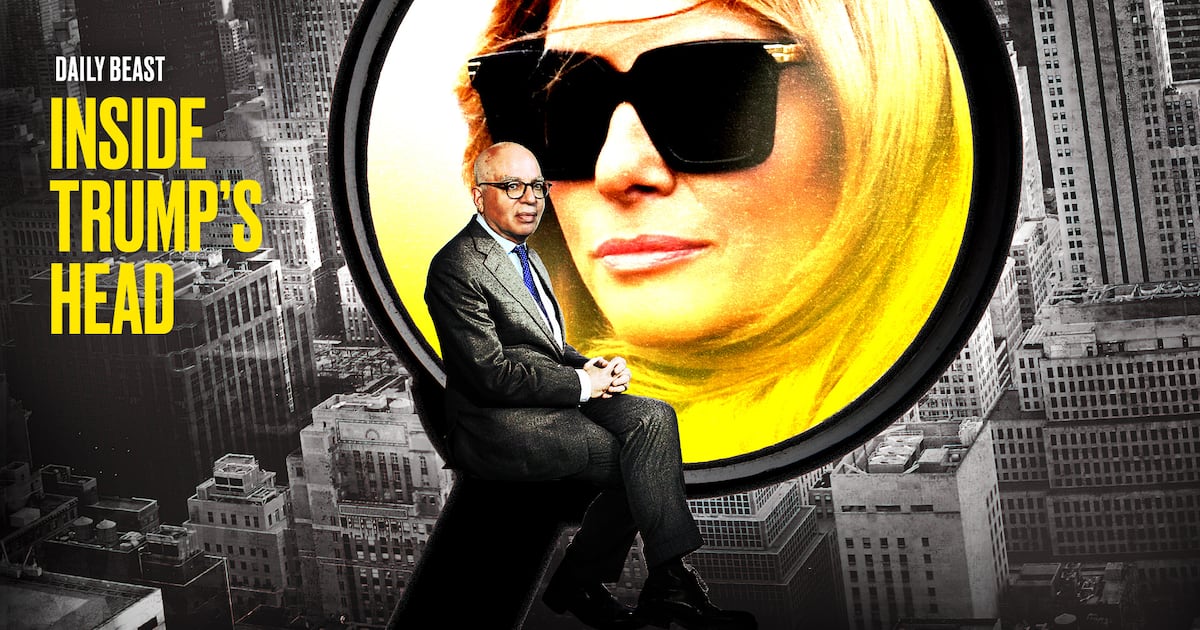The New York Public Library is in a custody battle for its soul. In a proposal with the unfortunate Politburo-sounding title Central Library Plan, the NYPL’s trustees would like to spend $300 million to transform the monumental 1911 Beaux-Arts Main Research Library on Fifth Avenue and 42nd Street into a hybrid of research, circulation, computing and café lounging—more coffee bars and other chatty spaces. The Norman Foster redesign would be partly financed by a yard sale, of the Mid-Manhattan branch across the street (the largest circulating library in the country), and the Science, Industry and Business Library on 34th Street. Nearly two million books currently shelved in the research stacks will be shipped to a storage facility in New Jersey. (As a native Jersey boy, I can attest that our storage facilities are vast.) However, more than 1,000 authors and scholars, crowned by Nobel- and Pulitzer-winning heavyweights including Salman Rushdie, Mario Vargas Llosa and Annalyn Swan, have signed a punishing letter intended to knockout the renovation. If Patience and Fortitude, the beloved stone lions that guard the library’s entrance, could talk, they would tell the trustees: “Folks, when you’ve provoked the likes of sedate bookworms into publicly hating your guts, your problem goes deeper than something solved by a cup of library-brewed mochachino.”
I wrote my memoir in the 42nd Street building’s Rose Reading Room, an old-world hall like the dining room of a transatlantic liner. Big room, big ideas, big words. Libraries house books, but that’s become beside the point, as the Central Library Plan makes clear. The conflict is much bigger than just a punch-up between a gang of New York bibliophiles. When e-books conquer paper and Google digitizes the world’s collections, the impact will make Caesar’s torching of the Ancient Library of Alexandria feel like a sunburn. Who’s going to need a bricks-and-mortar library when you’ve got all the world’s titles on a single device? Three hundred million dollars for a coffee bar? Traveling the country on a book tour, I’ve seen the contemporary collision of past, present and future up close.
Walk into a library in any city and you’ll witness a death match between old and new, a clash deeper than the cracks in the Carrara marble. The preservation of the past bolted to the promise of the future has made libraries ground zero of a vanishing world. The problem is that libraries have tried to accommodate the transition, and spent enormous sums of money doing so, carpetbombing their legacies into oblivion. Libraries across the country have erected architectural trophies and put themselves out of business. Public libraries, whose books have been relegated to wallpaper, have never looked better.
Our fin de siècle moment takes form in libraries like the Central Library in Indianapolis where a space-station sized addition of mirrored glass and soaring branched arches has been grafted on to the Doric-columned 1917 Indiana limestone original building. The overwhelming majority of the library’s users populate the bright open spaces encircling six floors of stacks—laptop stations, lounges, coffee bar, lunch café. They could have the same experience in the food court of the new Indianapolis Airport. When I entered the Central Library’s walnut-paneled Simon Room in the old building, I was the only person in an immense space housing thousands of volumes. A mural depicting the history of Indiana is painted on the ceiling in a style reminiscent of a Pompeii ruin. When paper and electronic media cohabitate under the same roof, inevitability is on full display.
The presence of stacks is even more absurd in buildings such as the truly spectacular starchitect-designed 2004 Central Library in downtown Seattle, funded from the tax rolls of software billionaires. (Can’t anyone come up with a name fresher than “Central” for these modern marvels? For once, corporate naming would be an improvement.) Looking out from the top floor westward to the harbor, under a canopy of glass suspended on slender masts, I felt like I was sailing on a catamaran, floating in the ether, unconnected to the physical library but—fitting for Seattle—connected to a virtual asset that would move with me. When the people of Seattle paid Rem Koolhaas his pricey design fee for the eleven-story structure, could they imagine they were paying for obsolescence? Despite the attempt to contemporize traditional stacks by creating a Book Spiral as the building’s spine, the books in the interior were as untouched as they were in Indianapolis and silenced by the energy circulating through the library’s mod outer coil. How can books compete with all of those comfortable couches?
Down the coast it was more of the same, with people treating libraries like nice coffee shops and scarcely anyone touching the books in an impressively detailed building in the tourist town of Medford, Oregon and an intact mid-century modern branch library near Los Angeles City Hall heavily-trafficked with non-native English speakers. People come for the power, they come for the space, they come for the communal energy—as I do—but who comes for the books? Librarians are hopeful that e-books will save lending libraries, in the way that publishers are betting on e-books to rescue the book business. Every library I visited, from the low-slung Dare County Library behind Kill Devil’s Frozen Custard on the North Carolina Outer Banks to the tech-savvy vertical shoebox in Portland, Maine, “housed” my book in both paper and e-book editions, but the migration to e-only was clear in the desperate optimism of the librarians’ remarks. When I asked why libraries would need to continue to exist as buildings to lend e-books the conversations got weird. The Dare County Librarian looked pained and broke the silence with a weather prediction about the timetable for Hurricane Irene making landfall.
Living through a revolution is confusing, a shadow dance of excitement and disillusionment; only afterwards do you realize what hit you. The libraries’ efforts at cultural relevance are blueprints of doomed good intentions. By molding design to the public’s café-lounge habits, libraries have sealed their fate as the perishing palaces of material knowledge. Understandably, their structures and decor have jumped to modernism in design and mood, breaking clean from the past, but in the process of burying their heritage, they’ve lost what made them special. The speed racer in Seattle and the other sleek craft made me reconsider my visit with the writer Lore Segal in her study at the Center for Scholars and Writers at the New York Public Library, one of the tradition-lined pockets the Central Library Plan proposes to double in size in an “exciting change.” The Center occupies a private room behind a massive paneled door to which I was reluctantly given entry by a Dickensian-looking gatekeeper. The qualities of old surroundings—time-polished wood finishes, upright seating, a bent sentry—seemed to motivate its inhabitants to use the library like, well, a library instead of a Starbucks.
Maybe the new libraries had gotten it all wrong. Maybe people would still touch the books if they didn’t look so pitiful compared to the shiny new objects decorating the atrium. A case of the tail wagging the dog that the NYPL would be wise to recognize. What did the social engineers of modern libraries expect would happen when they provided lounge chairs? Granted, the Scholars and Writers room clientele welcomes a splendid hibernation that is positively quaint, but couldn’t books still be alive for the general public in an old building? Couldn’t there still be a relationship between the users and the institution that cherished its traditions and old-fashioned utility in the digital age? Are we really so culturally caffeinated that the collected wisdom of our ancestors feels like nothing more than one big drag on our time?
I was hopeful that the people in the Portland, Oregon Central (yes) Library would make the case for books, and I could rest the nightmare vision of a near future in which the great libraries have all been converted to loft apartments. Having read that the Georgian brick mansion dated from 1913 and was listed on the National Register of Historic Places, I was curious to see if she was a dowager or a Botoxed beauty.
A thorough renovation had cleaned, preserved and made pristine the building’s scalloped ceiling domes and revitalized the rich native wood paneling, but didn’t annex the past for the future. The Central Library was a vibrant time capsule, like the boardroom of a logging company, and I climbed 92 marble steps to the third-floor reading room sharing a pride of place with the Portlanders. In the Rose City for the first time, I felt kinship with the town. I’d cut up on local TV that morning and would read that night at Powell’s—the largest surviving new and used independent bookstore in the world. These were my people. If libraries could still exist, this would be the place to plant the flag.
The Humanities Reading Room was warm and clubby, if a little more confining than I’d envisioned, and I took the last open spot at the end of a filigreed oak table. The people filling the chairs looked like standard-issue hipsters—grungy, rank, pierced, inked, wool-capped on a warm day—the same crowd I’d eaten lunch among at the delicious food stands on Tenth and Adler. Peace-loving creatures with laptops and earbuds, more Portlandia than Drugstore Cowboy. This was a building with the enduring ethos of a book depository in a city of book lovers. But the true test of character would be found in the stacks.
I never made it there.
“Yo, dude!” the man at the opposite end of the table wearing a blood-red soul patch answers his phone, loud and clueless. “Nothing. Yeah. What time? Wow. Nothing . . .”
He has no regard for the fact that this is not a sports bar. There’s no let up after two long, noisy minutes, and none of my tablemates jump in to be The Man.
“Excuse me!” I say. “Would you mind?”
Into his phone: “What? I can’t hear you. Hang on, dude. Some asshole’s giving me grief.” To me (the asshole): “What’s your f--king problem?”
“I’m sorry, but if you’re going to talk, could you take it outside?”
“F--k you.”
“Are you serious?”
“Shut the f--k up!” His eyes are mossy and single me out for mayhem.
“Hey, just cool it. All we’re asking for is some quiet.” This is an overreach. No one else pays any notice to the rabble.
“I’d love to pop you right in the f--king mouth.” He balls a fist in his flat hand and punches for effect. There’s an inflatable tire around his mid-section that stretches his T-shirt to the seams. I’m sure he lands hard.
Then, the guy sitting across from me—a ‘no bullshit’ scowl, a ponytail, beard and toothless uppers—joins the party.
“Shut your f--king mouth, now,” he says down the table. The phone blather hadn’t seemed to bother him, but the threats do.
“I’m gonna pop you in the f--king mouth, too, douche bag,” Phone Dude yells. I was wrong about this place. It’s actually more Fight Club than anything else. Where’s security? No one comes to libraries to steal books anymore, so quit checking messenger bags and cuff this guy. I see a white-haired librarian silent in an oatmeal cardigan and flaked forehead just outside the doorway. She’s got to be counting the minutes to retirement. No reason to get killed before her time at Central expires.
“Let’s go,” the man with the ponytail says, and rises from the table, scraping the heavy chair legs on the plank floor.
“Where?” Phone Dude snarls.
“Outside.”
The two sluggers leave. No one at the table looks up.
Twenty minutes pass and my hero returns. He sits down and goes immediately back to headphones.
“What happened?”
“Nothing,” he says, keeping his dark eyes on his laptop. “He kept running his mouth. Chicken shit. We got outside, and I said ‘Go ahead, hit me.’ He didn’t have the balls. Just kept shooting his mouth until he walked away crapping his pants.”
“Well, thank you. I appreciate you taking care of the situation. I was worried things were going to get ugly.”
“Nothing to worry about.” He adjusts his earbuds and clears his throat. Everyone else, the slackers at the table, the fossil librarian at the reference desk, carries on with their business. “We’re in a library.”





